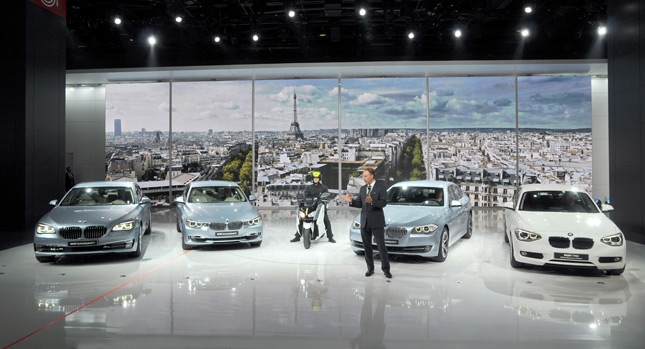The new car Market in Germany dropped by 2.9 percent last year, to 3.1 million vehicles, compared to 2011. In 2013, it’s forecasted to slip to 3.0 million units, according to data provided by the VDA trade group.
Despite the sales plunge, the German market is holding its own against the crisis that’s sweeping the European car market as a whole and has resulted in the worst sales for the past two decades.
One might think that German citizens are more affluent than their neighbors in the Old Continent are, so they can afford to replace their cars with new ones. The truth is, it is business fleets, not private sales that keep both the German market and home car manufacturers afloat.
In the United States, employers bought less than 20 percent of new cars in 2011, according to Oregon-based CNW Marketing research – and that number includes government agencies as well.
In Germany, cars bought by various companies for employee use accounted for 32 percent of total sales. When you add dealers and rental-car companies, the share increased dramatically: according to the German motor vehicle office, the KBA, in November, company sales accounted for 64 percent of all deliveries in Germany.
Domestic carmakers like BMW, VW and Mercedes-Benz, which reported record sales last year, practically own the segment with an 86 percent share.
“Company cars are the most stable sector of the German market”, IHS Automotive analyst Christoph Stuermer told Automotive News. “Private buyers face high uncertainty, while business clients were still investing their profits from previous years.”
While German law stipulates that employees using company vehicles must pay taxes on 1 percent of the car’s list price per month, company cars still represent a very good deal.
For example, even at the highest income tax rate of 45 percent, an employee will pay €181 a month in taxes before deductions due to business use for a BMW 520i. That’s less than half the €440 (US$575) per month it costs to lease the same car from BMW itself.
“Compared to the taxes paid on company cars in neighboring countries, the German tax office is asking for peanuts”, commented Nick Margetts, a director at JATO Dynamics market research firm.
It gets even better when you opt for a high-end version. An Audi A6 3.0 TDI Sport Selection Quattro that’s listed at €56,650 (roughly US$74,000) will burden an employee by €255 (US$333) each month, a stunning €465 (US$608) less than Audi’s asking price for a direct lease.
That’s why corporate customers, who can use their cars for non-corporate transport, too, accounted for 71 percent of total Porsche sales in Germany in 2011 and nearly 85 percent of total high-end vehicles registered.
By Andrew Tsaousis
Story References: Autonews
PHOTO GALLERY




